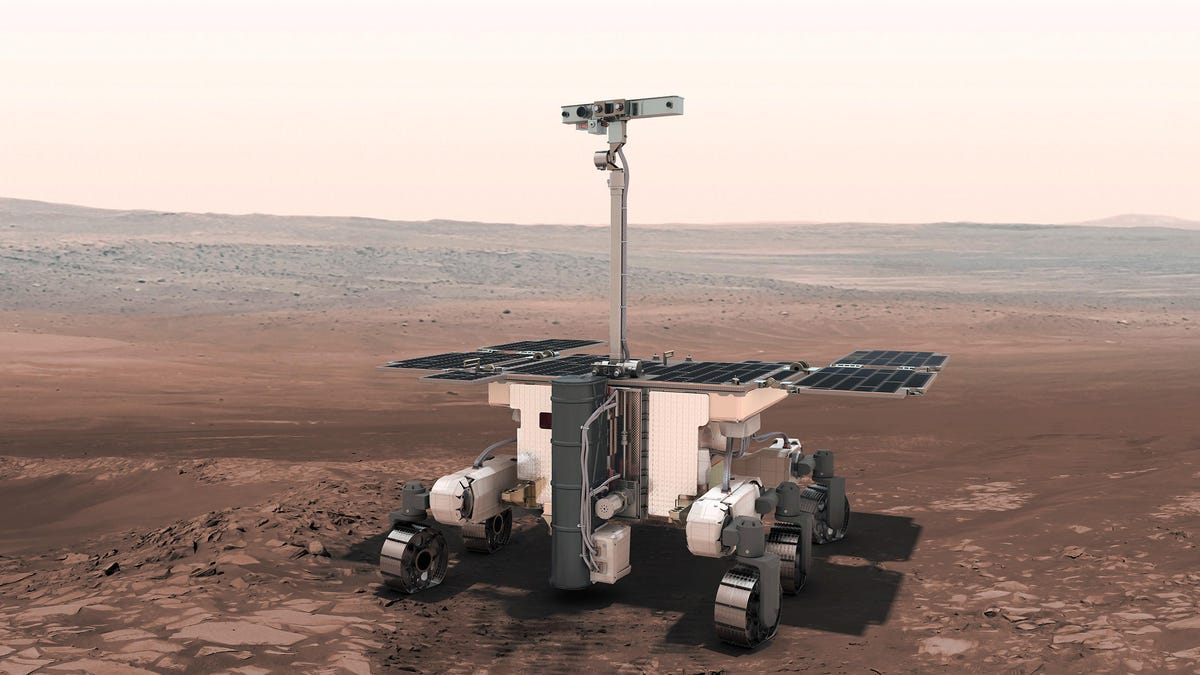ExoMars rover launch delayed until 2022 over technical issues, coronavirus
The Rosalind Franklin rover will have to wait a little longer to make it to Mars.

An artist's rendering of the ExoMars rover on the red planet.
NASA isn't the only space agency planning to send a fresh rover to Mars. The European Space Agency was hoping to launch its ExoMars mission this year to land the Rosalind Franklin rover on Mars in 2021. The mission has now been pushed back to a 2022 launch.
The ESA announced the delay on Thursday after discussing plans with its main mission partner, Russia's Roscosmos. The ESA cited hardware and software issues and the spread of the COVID-19-causing coronavirus as reasons for the delay.
"It is driven primarily by the need to maximize the robustness of all ExoMars systems as well as force majeure circumstances related to exacerbation of the epidemiological situation in Europe which left our experts practically no possibility to proceed with travels to partner industries," said Roscosmos Director General Dmitry Rogozin.
The delay isn't too surprising considering the problems that've cropped up with the mission's parachute system. The ESA has also implemented travel and access restrictions on employees and visitors in response to the COVID-19 pandemic.
The ESA is now eyeing a launch date somewhere between August and October of 2022, which would put the rover on Mars in 2023.
NASA's Perseverance rover will already be in residence on the red planet when Rosalind Franklin arrives, assuming the US space agency stays on track for its own launch this year.

